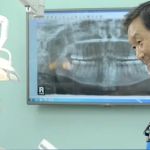Is a Dentist a Medical Doctor? Understanding the Differences
Have you ever wondered whether a dentist is considered a medical doctor? This is a common question, and it’s understandable why people might be confused. After all, both dentists and medical doctors (MDs) work in the healthcare field, but they specialize in different areas. I’ve always been curious about this distinction, so I decided to dig deeper and find out more about the qualifications and roles of dentists and medical doctors. In this article, I’ll walk you through what sets these two professions apart, while also discussing their similarities and how they both contribute to your overall health.
1. The Basic Difference Between Dentists and Medical Doctors
At the most fundamental level, the difference between a dentist and a medical doctor lies in their area of expertise. While both are healthcare professionals, a dentist focuses specifically on oral health, while a medical doctor treats a broad range of medical conditions affecting the body as a whole. The distinction goes beyond just what they treat – it’s also about their education and training.
Medical doctors (MDs) study general medicine, focusing on the entire body and its systems, from the heart to the skin. They diagnose and treat diseases, prescribe medications, and perform surgeries. On the other hand, dentists are experts in oral health. They specialize in diagnosing and treating conditions of the teeth, gums, and mouth. While they don’t handle general health issues, they are integral to overall well-being, as good oral health can significantly impact your overall health.
2. Education and Training: What Makes Dentists Different from Medical Doctors?
The educational paths for dentists and medical doctors share some similarities, but there are key differences in terms of duration and focus. To help clarify, let me walk you through both educational journeys.
Medical Doctor Education
Becoming a medical doctor involves a long and rigorous educational path. Typically, it starts with a 4-year undergraduate degree, often with a focus on the sciences like biology, chemistry, and physics. After earning a bachelor’s degree, medical school follows, which usually lasts another 4 years. During medical school, future doctors study general medicine, learning about anatomy, pharmacology, pathology, and much more. After medical school, MDs must complete a residency program, which can last anywhere from 3 to 7 years, depending on the specialty. This hands-on training is crucial for becoming proficient in diagnosing and treating various diseases and conditions.
Dentist Education
Becoming a dentist requires a similar commitment to education, but with a more focused approach. Like medical school, dental school generally follows a 4-year undergraduate degree, although some students may have specific undergraduate coursework in subjects like biology and chemistry. Dental school lasts 4 years, during which students focus on subjects like oral anatomy, dental pathology, and restorative dentistry. After completing dental school, dentists must pass a licensing exam to practice. While some dentists may pursue additional training or certifications in specialties such as orthodontics or periodontics, their training is specifically geared toward the mouth and teeth.
3. What Do Dentists and Medical Doctors Have in Common?
Although dentists and medical doctors are specialized in different areas, they do have several similarities. First and foremost, both are highly trained professionals who are dedicated to improving and maintaining the health of their patients. Both types of doctors are required to pass rigorous exams to become licensed, and they both follow strict ethical guidelines to ensure patient safety and well-being.
Another similarity is that both dentists and medical doctors emphasize preventative care. While dentists focus on oral health, they also educate their patients on how to maintain proper oral hygiene to prevent future issues such as cavities and gum disease. Similarly, medical doctors provide guidance on maintaining general health through diet, exercise, and regular check-ups.
4. The Role of Dentists in Healthcare
Though dentists are not considered medical doctors, their role in healthcare is just as important. Oral health plays a significant part in overall health, and many systemic diseases, such as diabetes and heart disease, can manifest with symptoms in the mouth. Regular visits to the dentist can help catch early signs of these health issues, allowing for timely treatment and intervention.
For instance, gum disease is linked to various health problems, including cardiovascular disease. A dentist can spot early signs of gum disease during routine check-ups and offer treatment to prevent it from escalating. Additionally, oral infections can sometimes lead to severe complications if left untreated, making it critical to seek professional dental care when needed.
5. A Personal Story: My Own Experience with Dentists and Medical Doctors
I’ll never forget my first trip to the dentist as an adult. I had always visited the dentist for cleanings and check-ups, but this particular visit was different. I had been experiencing some discomfort in my mouth, and my regular dentist noticed some early signs of gum disease. He quickly referred me to a periodontist, a dental specialist, who could help me address the issue before it became a bigger problem.
It was a good reminder that while a dentist may not be a medical doctor, they are incredibly important to your overall health. If I hadn’t seen my dentist for my regular cleaning, I may not have caught the gum disease in time. Thanks to the quick action of my dentist, I was able to receive the right care and avoid more serious complications later on.
6. When Should You See a Dentist vs. a Medical Doctor?
Knowing when to see a dentist and when to consult a medical doctor can sometimes be tricky. Generally, you should see a dentist if you’re experiencing issues related to your teeth, gums, or mouth. Common reasons to visit a dentist include:
- Toothaches
- Gum pain or swelling
- Cavities or tooth decay
- Problems with your bite or jaw
- Regular check-ups and cleanings
If you have general health concerns, such as a fever, unexplained weight loss, or difficulty breathing, it’s best to consult with a medical doctor. Your medical doctor can diagnose a wide range of conditions and may refer you to a specialist if necessary.
Ultimately, both dentists and medical doctors play essential roles in your overall health. While they focus on different aspects of your body, they are both key to ensuring you stay healthy and happy.







 Uncasville Dental Associates4.0 (103 review)
Uncasville Dental Associates4.0 (103 review) Riccobene Associates Family Dentistry4.0 (523 review)
Riccobene Associates Family Dentistry4.0 (523 review) Premier Dental of Edison4.0 (285 review)
Premier Dental of Edison4.0 (285 review) Mee Dental Group 미치과3.0 (20 review)
Mee Dental Group 미치과3.0 (20 review) Icon Dental4.0 (120 review)
Icon Dental4.0 (120 review) Custom Endodontics4.0 (67 review)
Custom Endodontics4.0 (67 review) The Importance of Oral Health Education During Pregnancy for a Healthy Pregnancy
The Importance of Oral Health Education During Pregnancy for a Healthy Pregnancy Best Tips for Brushing Your Teeth Properly for Healthy Gums: Essential Techniques for Oral Health
Best Tips for Brushing Your Teeth Properly for Healthy Gums: Essential Techniques for Oral Health Why Skipping Dental Checkups Can Lead to Bigger Oral Health Problems
Why Skipping Dental Checkups Can Lead to Bigger Oral Health Problems Advantages of Porcelain Dental Restorations
Advantages of Porcelain Dental Restorations How Can Diabetes Cause Tooth and Gum Problems? Preventing and Managing Oral Health Issues
How Can Diabetes Cause Tooth and Gum Problems? Preventing and Managing Oral Health Issues Healthy Habits for Promoting Good Oral Health and Hygiene: Tips for a Healthy Smile
Healthy Habits for Promoting Good Oral Health and Hygiene: Tips for a Healthy Smile